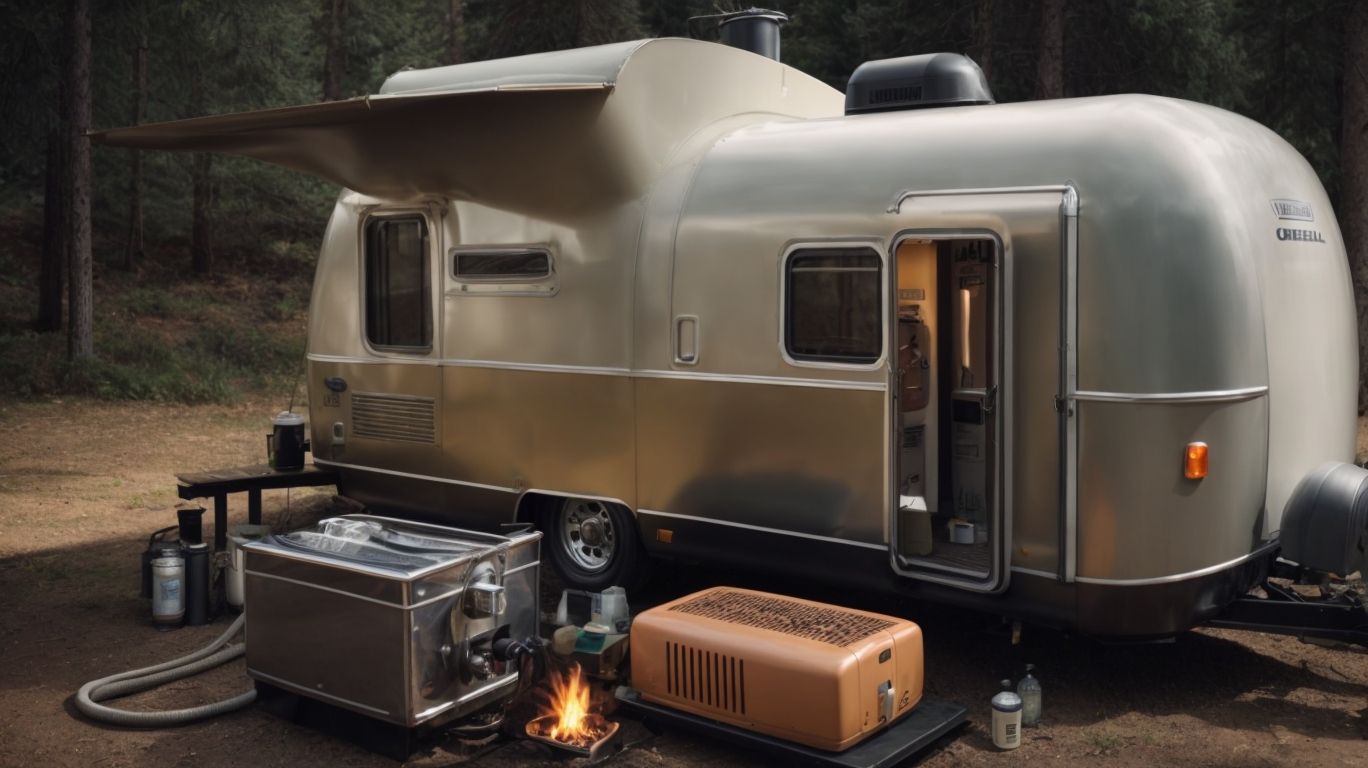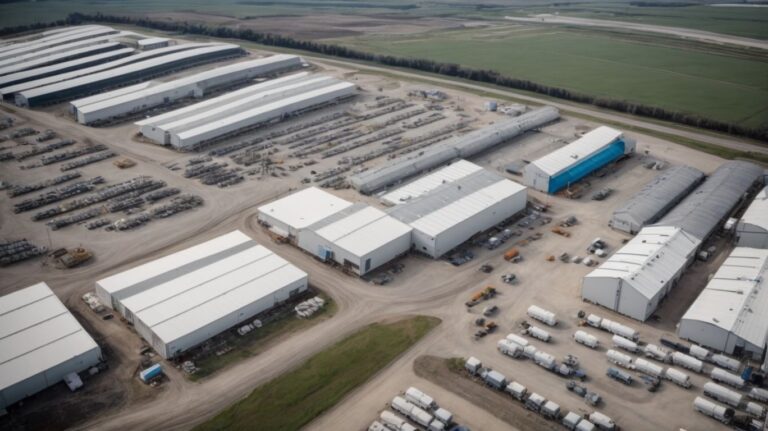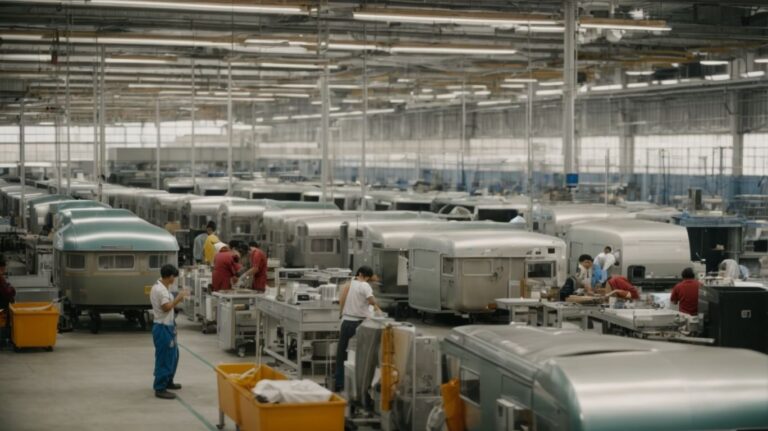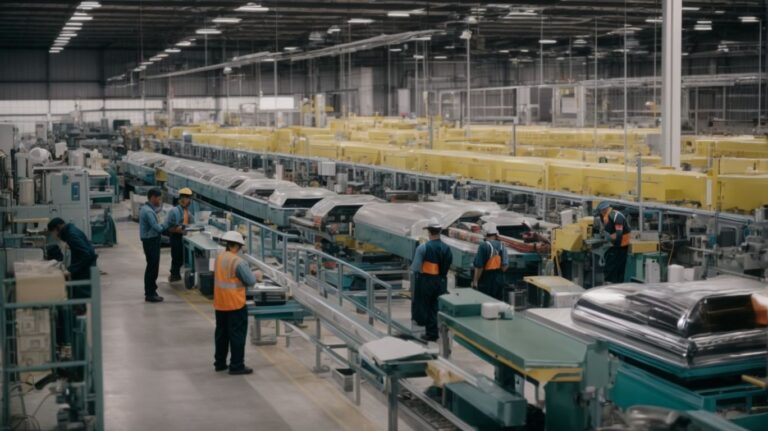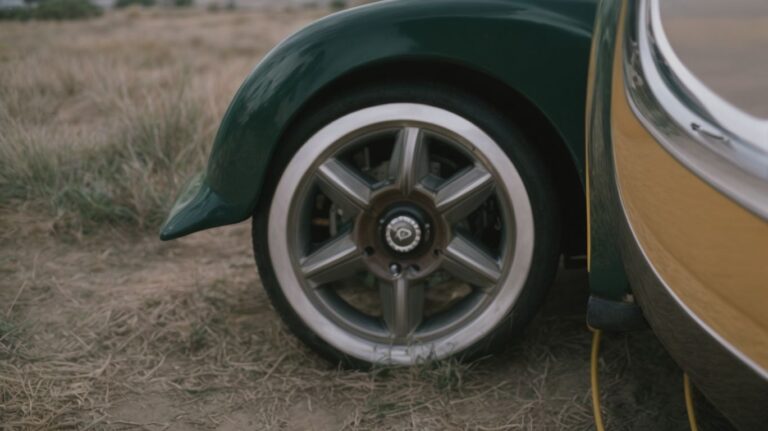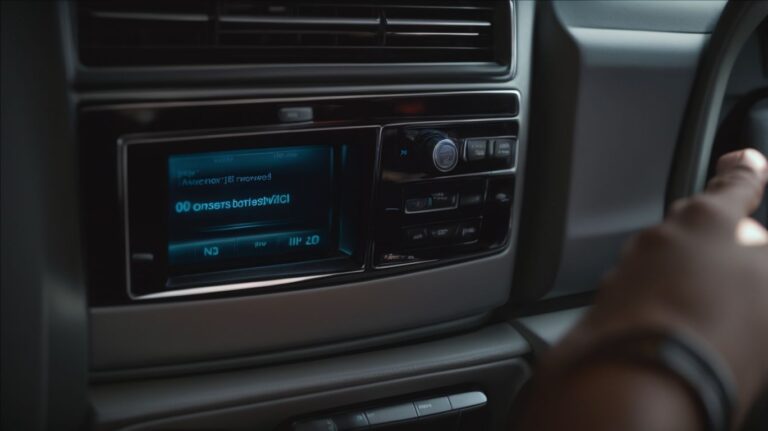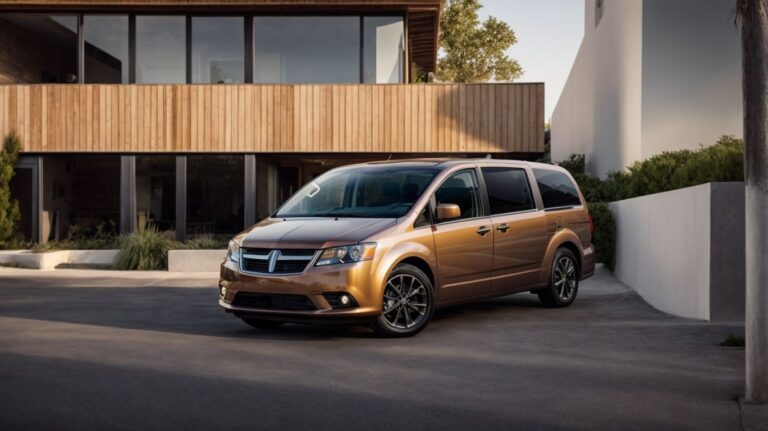The Inner Workings of Diesel Heaters in Caravans Explained
Are you curious about how diesel heaters work in caravans?
From the fuel tank to the combustion chamber and blower fan, each component plays a crucial role in keeping you warm during your travels.
In this article, we will explore the benefits of using a diesel heater, the different types available, how to choose the right size for your caravan, and essential maintenance tips.
Stay tuned to learn everything you need to know about diesel heaters in caravans.
Key Takeaways:
What Is a Diesel Heater?
A diesel heater is a heating device that uses combustion to generate heat through the combustion of diesel fuel.
During the combustion process, diesel fuel is sprayed into a combustion chamber and mixed with air. An ignition system then ignites the fuel-air mixture, producing a controlled flame that releases heat. This heat is transferred to a heat exchanger, which in turn warms the air passing through it. The warm air is then circulated into the desired space, providing efficient heating. Diesel heaters are commonly used in various applications such as automotive and marine industries, camping, construction sites, and industrial settings due to their effectiveness and portability.
How Does a Diesel Heater Work?
Diesel heaters operate by utilizing combustion to burn diesel fuel, producing heat that raises the temperature within the heating system.
During operation, the diesel fuel is injected into the combustion chamber, where it mixes with air and is ignited by a glow plug or an electric spark. This ignition process releases a steady stream of heat, which is then transferred to the heat exchanger. The heat exchanger efficiently absorbs the heat produced, allowing it to be circulated through the heating system using a fan or blower. This method ensures that the heat generated from burning diesel fuel is effectively distributed throughout the space being heated, making diesel heaters a reliable and energy-efficient option for maintaining warmth in various settings.
What Are the Components of a Diesel Heater?
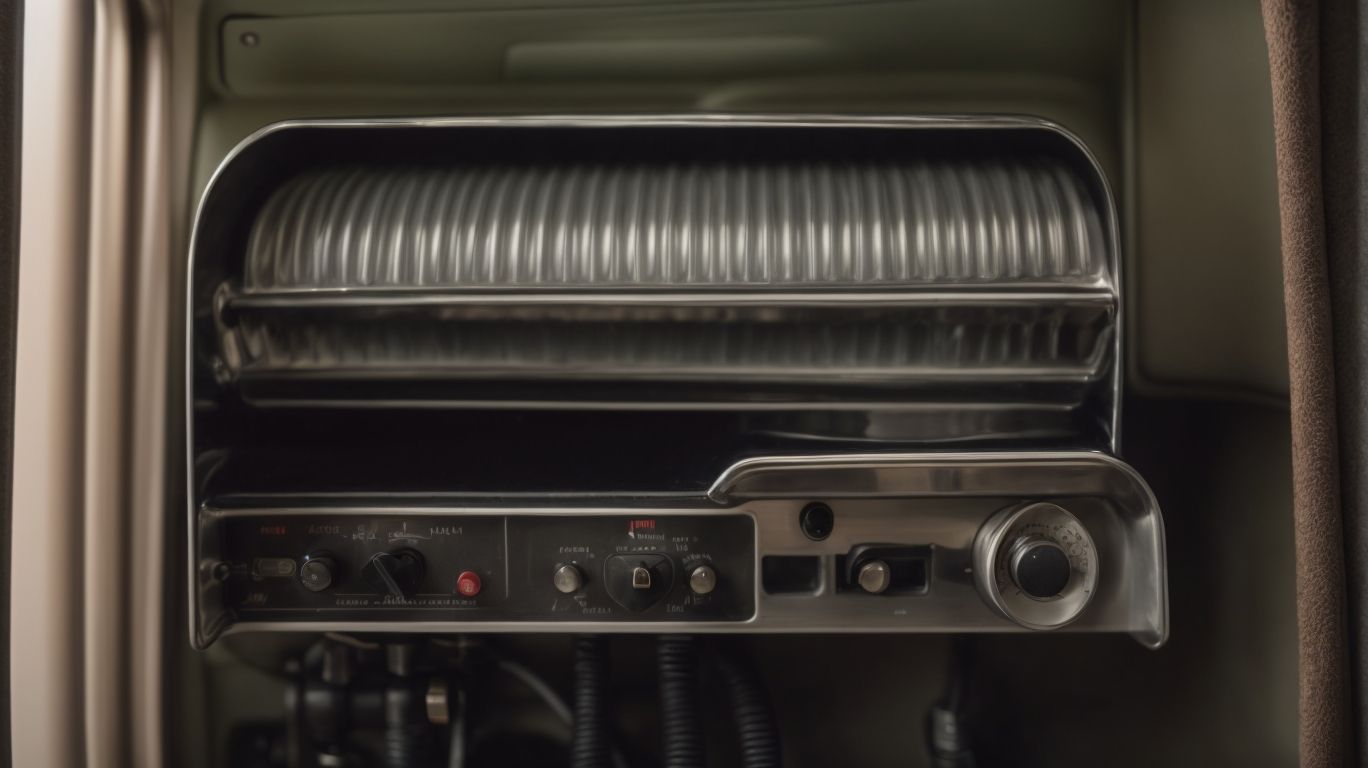
Credits: Motorcaravanning.Com – Gary Ramirez
The components of a diesel heater include a fuel tank, fuel pump, combustion chamber, heat exchanger, blower fan, and control panel.
One of the key elements in a diesel heater is the combustion chamber, where the magic of heat generation happens. Fuel from the tank is pumped into the combustion chamber, where it mixes with air and is ignited to produce a controlled flame. This flame then interacts with the heat exchanger, a crucial part that transfers the heat generated to the surrounding air circulating within the heater.
The blower fan plays a vital role in distributing the heated air efficiently throughout the space, ensuring uniform heating. Controlled by the control panel, this fan regulates the temperature and airflow, maintaining the desired heating level. Regular maintenance of all these components is essential to ensure optimal performance and longevity of the diesel heater.
Fuel Tank
The fuel tank in a diesel heater stores the diesel fuel needed for combustion, ensuring a steady supply for the heating process.
Fuel tank capacity plays a crucial role in determining how long the heater can operate continuously without the need for refilling. Larger tanks offer extended run times, ideal for prolonged heating needs. Refilling the tank should be done with caution to prevent spillage and contamination. It’s recommended to use a funnel to avoid any spills. Maintaining fuel quality is essential for efficient combustion, as impurities can clog the burner and affect performance. Always use clean, high-quality diesel fuel to ensure optimal heater operation.
When handling diesel fuel, safety measures are imperative. Keep fuel containers tightly closed when not in use, and store them in well-ventilated areas away from potential ignition sources. To minimize the risk of accidents, it’s crucial to follow proper fuel handling procedures and wear appropriate protective gear, such as gloves and goggles, during refilling and maintenance.
Fuel Pump
The fuel pump in a diesel heater is responsible for delivering the fuel from the tank to the combustion chamber where it is burned to generate heat.
Without the fuel pump, the fuel wouldn’t be able to reach the combustion chamber efficiently. The pump plays a crucial role in fuel circulation, maintaining the required pressure for optimal combustion, and ensuring a steady flow of fuel throughout the system.
This consistent fuel supply is essential for the heater to function effectively, providing heat when needed. Proper maintenance of the fuel pump is vital to prevent issues such as clogs or malfunctions that can disrupt the fuel flow and impact the heater’s performance.
Combustion Chamber
The combustion chamber in a diesel heater is where the diesel fuel is ignited and burned, producing the heat that warms the air in the heating system.
Within the combustion chamber, the ignition process occurs through a controlled sequence. When the diesel fuel is injected into the chamber, it mixes with air and is ignited by a spark or high temperature generated by compression. This combustion generates intense heat, reaching temperatures of over 1000 degrees Celsius. This high temperature is crucial for efficient and complete combustion of the fuel, ensuring maximum heat output for the heating system.
Proper ventilation within the combustion chamber is essential to maintain a steady supply of oxygen for the combustion process. Inadequate ventilation can lead to incomplete combustion, creating hazardous byproducts like carbon monoxide. Safety measures such as CO detectors and regular maintenance of ventilation systems are crucial to prevent any potential risks associated with the combustion chamber in a diesel heater.
Heat Exchanger
The heat exchanger in a diesel heater transfers the heat generated from the combustion process to the air that circulates within the heating system.
By efficiently absorbing the heat produced, the heat exchanger plays a vital role in ensuring that the interior of the diesel heater reaches and maintains the desired temperature. It acts as the intermediary between the hot exhaust gases and the fresh air intake, facilitating the transfer of thermal energy.
Proper maintenance and cleanliness of the heat exchanger are paramount to its functionality. When the heat exchanger is free from soot or debris buildup, heat transfer efficiency is optimized, resulting in more effective heating and improved overall performance of the diesel heater.
Blower Fan
The blower fan in a diesel heater facilitates the circulation of warm air produced by the heating system throughout the cabin or interior space.
By rapidly moving the air heated by the diesel combustion, the blower fan plays a crucial role in ensuring that every corner of the vehicle receives warmth evenly. This constant movement of air helps in preventing any cold spots from forming, creating a comfortable environment. The fan actively contributes to distributing the heat efficiently, allowing for quick and uniform heating of the entire space.
- Fan speed control is vital in managing the intensity of the airflow and adjusting it according to the desired temperature. By regulating the speed of the blower fan, users can fine-tune the heating process, maintaining a consistent level of warmth while conserving energy.
Control Panel
The control panel of a diesel heater allows users to adjust temperature settings, control the heating system, and monitor performance for optimal comfort.
One of the key features of the control panel is the temperature control options, enabling users to set their desired heating level for a cozy environment. The safety settings integrated into the system ensure that the heater operates securely and efficiently. The user-friendly interface of the control panel makes it easy to navigate through various functions, making it simple for anyone to manage the heater effectively. Regular monitoring and calibration of the control panel are essential to maintain precise temperature control and ensure the heater’s efficient performance.
What Are the Benefits of Using a Diesel Heater in a Caravan?
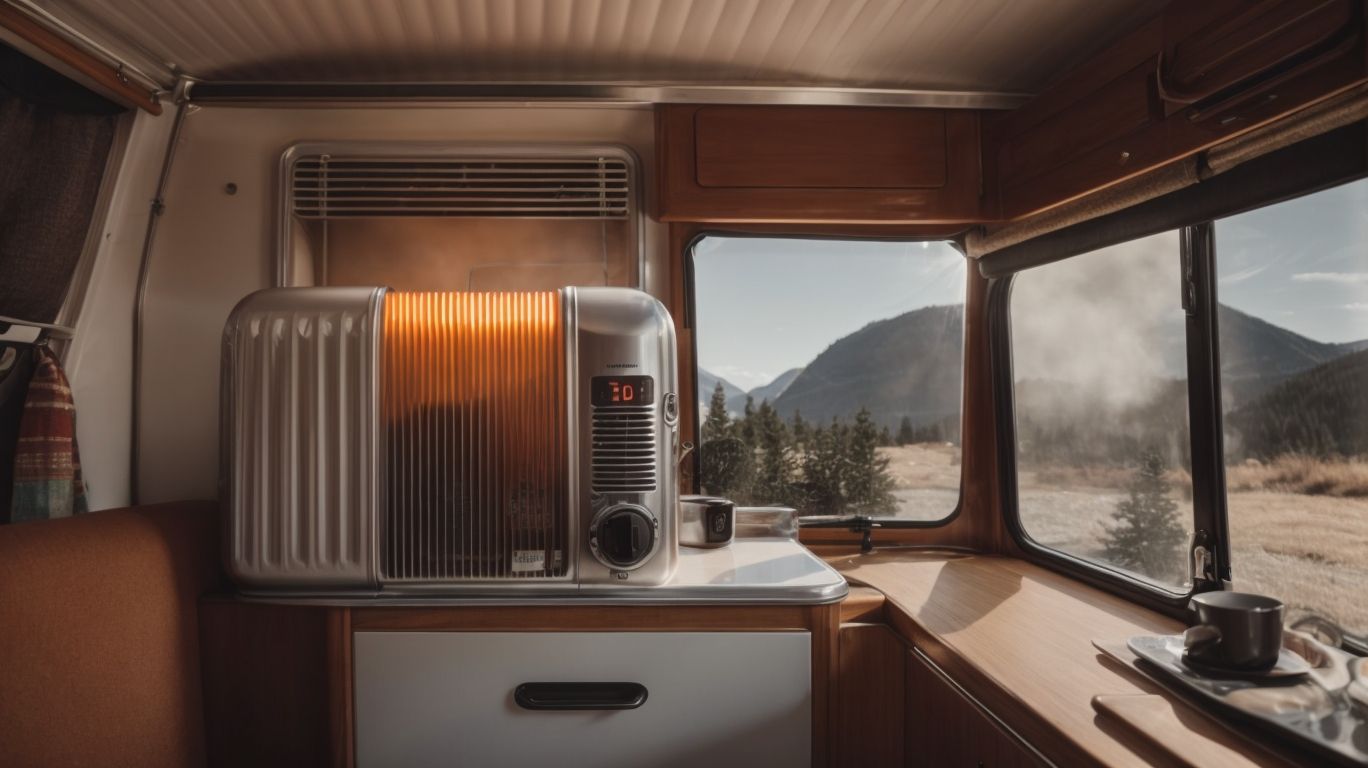
Credits: Motorcaravanning.Com – Peter Scott
Using a diesel heater in a caravan provides efficient heating, enhanced comfort, and safety during cold weather travel.
One of the key advantages of a diesel heater in a caravan is its heating efficiency. Diesel heaters are known for their powerful heat output, quickly warming up the interior of the caravan, even in extreme cold conditions. This ensures you stay warm and cozy, making your travel experience more enjoyable.
In terms of interior comfort, a diesel heater offers consistent and reliable heating throughout the caravan. It eliminates cold spots and provides a comfortable environment for relaxing, cooking, or sleeping, regardless of the outside temperature.
Moreover, safety measures are paramount when using a diesel heater. These heaters are designed with various safety features such as automatic shut-off mechanisms in case of overheating or low oxygen levels. Users can have peace of mind knowing that they are using a safe heating solution.
Efficient Heating
Efficient heating with a diesel heater ensures consistent warmth and optimal performance, maintaining a comfortable environment inside the caravan.
One of the key aspects that set diesel heaters apart in terms of efficiency is their ability to provide heat consistently, regardless of external conditions or fluctuations. The performance of diesel heaters is not only reliable but also durable, making them a long-lasting heating solution for mobile homes.
In terms of fuel consumption, diesel heaters are known for their efficiency, often requiring less fuel compared to other heating options. This not only saves on costs but also minimizes the need for frequent refills, which is particularly advantageous during long trips or in remote locations.
In addition, diesel heaters excel in distributing heat evenly throughout the space, ensuring that every corner of the caravan receives warmth. This even heat distribution is essential for creating a comfortable and cozy living environment, especially during cold weather.
Compared to alternatives such as propane or electric heaters, diesel heaters offer a balance of performance, fuel efficiency, and heat distribution that make them a popular choice for caravan owners seeking reliable and effective heating solutions.
Cost-effective
A diesel heater is a cost-effective heating solution for caravans, offering fuel efficiency and potential savings on heating expenses.
Being powered by diesel fuel, these heaters are known for their remarkable fuel efficiency, translating into lower fuel consumption and reduced operational costs over time. In the long run, investing in a diesel heater can lead to substantial savings on heating expenses, making it a wise financial decision for caravan owners.
Optimizing fuel usage is key to maximizing the cost-effectiveness of a diesel heater. Simple practices like maintaining proper insulation in the caravan, regular maintenance of the heater, and programming the thermostat efficiently can help in achieving optimal fuel efficiency.
Easy to Install
Installing a diesel heater in a caravan is a straightforward process that requires minimal setup and installation time for immediate heating benefits.
One of the key factors to consider when setting up a diesel heater in a caravan is the placement. The heater should be installed in a well-ventilated area, away from any flammable materials and preferably close to where you spend most of your time inside the caravan. It’s essential to ensure that the heater is compatible with your specific caravan model to guarantee optimal performance.
Safe to Use
Diesel heaters are designed with safety features to ensure secure operation, with proper installation and precautions recommended for user protection.
In terms of installing a diesel heater, it is crucial to follow the manufacturer’s guidelines meticulously. This ensures that the heater functions efficiently and safely. Proper ventilation is key to allowing the heater to operate correctly and prevents the buildup of harmful gases like carbon monoxide. It’s advised to install carbon monoxide detectors in the vicinity of the heater as an additional safety measure.
Regular maintenance checks are necessary to keep your diesel heater in optimal condition. Inspecting the system for any signs of wear and tear, leaks, or malfunctions is essential to avoid any potential hazards. Keeping the heater clean and well-maintained not only prolongs its lifespan but also reduces the risk of accidents.
During operation, it’s important to be cautious and aware of safety practices. Avoid placing flammable materials near the heater and ensure it is placed on a stable, level surface. Never leave the heater unattended while in use, and always turn it off when not needed. By following these safety precautions and conducting regular system inspections, users can enjoy the benefits of a diesel heater without compromising on safety.
What Are the Different Types of Diesel Heaters?
There are different types of diesel heaters available, including air heaters, water heaters, and combination heaters, each offering unique heating options for caravans.
Air heaters function by drawing in cold air from the surrounding environment, passing it over a heat exchanger that is heated by burning diesel fuel, and then circulating the warm air back into the caravan interior.
Water heaters, on the other hand, utilize a heat exchanger that warms up a water-based antifreeze solution, which is then pumped through a network of pipes to radiators or convectors placed throughout the caravan.
Combination heaters provide the benefits of both air and water systems, offering a versatile solution that can effectively heat the caravan interior and provide hot water for showers and washing.
Air Heaters
Air heaters are a type of diesel heater that focuses on circulating warm air within the caravan, providing efficient heating and comfort for travelers.
This type of heating system plays a crucial role in creating a cozy environment inside the caravan by continuously circulating warm air. By regulating the temperature effectively, air heaters ensure that travelers can enjoy a comfortable stay regardless of the weather conditions outside. One of the key advantages of air heaters is their ability to rapidly warm up the interior space, allowing for quick and convenient heating. Their efficient operation not only keeps the caravan warm but also helps maintain a consistent temperature, enhancing overall comfort during travel.
Water Heaters
Water heaters are designed to circulate heated water through the caravan’s heating system, offering consistent warmth and hot water supply for various applications.
Within a diesel heating system, water heaters play a vital role in maintaining the desired temperature levels through a process of heating water and circulating it efficiently. These heaters are equipped with mechanisms that enable them to transfer heat effectively to the water, ensuring a continuous supply of hot water for showers, washing, and other domestic purposes in caravans.
Combination Heaters
Combination heaters combine air and water heating functions in a single unit, providing versatile heating options for caravans that require both air circulation and water heating capabilities.
These innovative heaters offer the convenience of a dual heating system, ensuring that caravan occupants can enjoy a comfortable environment regardless of the climate conditions outside. By efficiently combining air and water heating, combination heaters optimize energy usage, resulting in cost savings for caravan owners in the long run.
The space-saving design of these heaters makes them ideal for compact living spaces such as caravans, where every inch counts. They are designed to provide comprehensive heating solutions without taking up excessive space, allowing for a more functional and comfortable interior. With combination heaters, caravan owners can enjoy the benefits of a well-rounded heating system that caters to all their heating needs efficiently.
How to Choose the Right Size Diesel Heater for Your Caravan?
Selecting the right size diesel heater for your caravan involves considering the heating capacity, interior space, insulation levels, and climate conditions to ensure optimal comfort and efficiency.
When determining the heating capacity required, calculate the total volume of the caravan interior in cubic meters. A rule of thumb is to provide around 0.1 kW of heat per cubic meter for average insulation levels, adjusting for colder climates or poorer insulation. Consider the layout of the caravan, as heater placement can affect heat distribution.
Additionally, insulation quality plays a crucial role in heat retention. Well-insulated caravans will require less heating capacity compared to poorly insulated ones. Factors such as double-glazed windows, foam insulation, and draft-proofing can significantly impact heat loss.
How to Properly Maintain Your Diesel Heater in a Caravan?
Proper maintenance of a diesel heater in a caravan is essential for ensuring safety, optimal performance, and longevity of the heating system.
To keep your diesel heater running smoothly, it is recommended to conduct regular inspections on critical components such as the fuel filter, combustion chamber, and exhaust system. Inspect for any signs of wear, corrosion, or blockages that could hinder the system’s efficiency. A thorough cleaning routine is crucial to prevent carbon buildup and ensure proper airflow.
Adhering to a scheduled maintenance plan will not only extend the lifespan of your diesel heater but also minimize the risk of malfunctions during your travels. It’s also important to perform safety checks regularly, including examining the connections, vents, and carbon monoxide detectors to ensure they are functioning correctly.
Frequently Asked Questions
What is a diesel heater and how does it work in caravans?
A diesel heater is a heating system that uses diesel fuel to generate heat and warm up the interior of a caravan. It works by burning the diesel fuel in a combustion chamber and then circulating the heated air through a series of ducts and vents to distribute the warmth throughout the caravan.
What are the benefits of using a diesel heater in a caravan?
One of the main benefits of using a diesel heater in a caravan is that it is more efficient and cost-effective compared to other types of heating systems. It also doesn’t require electricity, making it a great option for off-grid camping. Additionally, diesel heaters provide consistent and powerful heating, making them ideal for colder climates.
How do I maintain and troubleshoot my diesel heater in a caravan?
To maintain your diesel heater, it is important to regularly check and clean the air intake and exhaust vents, as well as regularly changing the fuel filter. If your heater is not working properly, it could be due to a clogged fuel filter, low fuel level, or faulty ignition. Refer to your owner’s manual for specific troubleshooting steps.
Can I install a diesel heater in a caravan myself?
Although it is possible to install a diesel heater yourself, it is recommended to have a professional do it for safety reasons. Diesel heaters involve working with combustible fuels and proper installation is crucial to ensure safe and efficient operation. It is always best to consult a qualified technician for installation.
What are the different types of diesel heaters available for caravans?
There are two main types of diesel heaters for caravans – forced air and radiant. Forced air heaters use a fan to blow heated air into the caravan, while radiant heaters use a heating element to radiate heat. Forced air heaters are more common and provide faster and more even heating, while radiant heaters are quieter and more energy efficient.
Are there any safety precautions I should take when using a diesel heater in a caravan?
Yes, it is important to follow safety precautions when using a diesel heater in a caravan. This includes ensuring proper ventilation to prevent carbon monoxide buildup, keeping flammable materials away from the heater, and turning off the heater when refueling. It is also recommended to have a carbon monoxide detector installed in the caravan for added safety.

